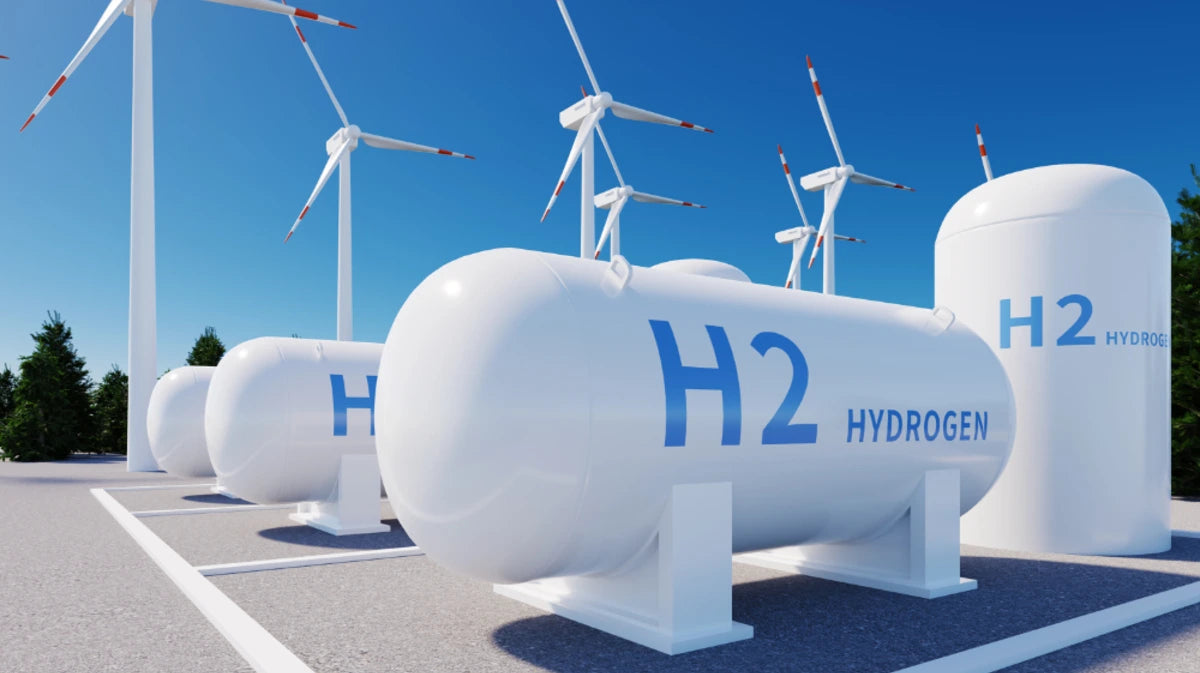
Hydrogen
Hydrogen (H) is a chemical substance that is the first and lightest element in the periodic table, and is one of the most abundant elements in nature and the universe. This colorless, odorless, and tasteless gas is commonly found in most stars, water molecules, and organic compounds. The chemical properties of hydrogen offer a wide range of potential uses, from the foundations of life to energy production. In this article, we will examine every aspect of hydrogen, from its chemical and physical properties to its biological importance, industrial applications, and environmental effects.
Chemical Properties of Hydrogen
Hydrogen is the first element on the periodic table and has only one proton and one electron. This makes hydrogen the simplest and lightest atom. Due to its electron configuration, the hydrogen atom is generally quite reactive in forming bonds. Chemically, hydrogen is usually found alone as the H₂ molecule. The H₂ molecule, formed by the union of two hydrogen atoms, is the most common form of hydrogen.
Reaction of Hydrogen with Oxygen:
Hydrogen combines with oxygen to form water (H₂O). This is a well-known and fundamental reaction in chemistry. This reaction can be expressed as follows:
This process also releases high energy and highlights the importance of hydrogen for energy production. The water molecule is a fundamental component for the continuity of life, so the capacity of hydrogen to form water is of great biological and ecological importance.
Reaction of Hydrogen with Other Elements:
It also forms compounds with many elements such as hydrogen, carbon, nitrogen, and sulfur. For example, hydrogen and carbon combine to form organic compounds such as methane (CH₄). Such compounds form the basic building blocks of organic chemistry and are vital in biological processes.
The Biological Role of Hydrogen and Its Importance in Life
Hydrogen is considered one of the foundations of life. Hydrogen atoms are involved in many biological processes in the body and in our environment. Water is the basic building block of cells, and living things use water in their metabolic processes. In addition, the role of hydrogen in the structure of biological molecules is critical to maintaining cellular functions.
Water and Hydrogen:
Water is one of the most important compounds for living things to survive. Water is formed by the combination of oxygen and hydrogen. Water is necessary for basic biological functions such as cellular metabolism, digestion and the elimination of waste products from the body. In addition, the properties of water (such as high heat capacity and solubility) facilitate the survival of living things.
Hydrogen and Cellular Respiration:
Hydrogen is also involved in cellular respiration. In particular, the protons and electrons carried by hydrogen are critical for energy production. In cellular respiration, hydrogen ions (protons) and electrons are used for energy production during the oxidation of organic compounds such as glucose. Mitochondria are the organelles involved in this process, and the transport and use of hydrogen is necessary for ATP production during aerobic respiration.
Industrial Uses of Hydrogen
Hydrogen has a wide range of industrial uses and plays an important role in power generation, chemical production, metal processing and many other sectors. The potential of hydrogen, especially in power generation, has attracted increasing attention in recent years.
1. Hydrogen as Fuel:
Hydrogen is an excellent fuel for energy production. This is achieved by reacting hydrogen with oxygen to produce water and energy. Hydrogen fuel cells offer an alternative energy source to fossil fuels, especially when used in electric vehicles. These fuel cells offer an environmentally friendly solution because they only produce water vapor and heat. This property of hydrogen has great potential for environmentally friendly energy production.
2. Chemical Production:
Hydrogen is needed in the chemical industry for reactions such as the production of ammonia (NH₃). Ammonia is used in the production of fertilizers, which increases productivity in agriculture. Hydrogen is also used to produce methanol (CH₃OH) and other organic compounds.
3. Metal Production:
Hydrogen is also used in the metalworking industry. In steel production in particular, hydrogen stands out as a reducing agent that can be used instead of carbon. Such a process enables more environmentally friendly and low-carbon metal production.
4. Refinery and Petrochemicals:
Hydrogen is also widely used in oil refineries and petrochemical plants. Especially during the processing of crude oil, hydrogen plays an important role in the conversion of organic compounds. At the same time, hydrogen is also used for the production of various petrochemical compounds.
Environmental Impacts of Hydrogen and Zero Emission Targets
The environmental impacts of hydrogen often depend on how it is produced. Traditionally, hydrogen is usually produced from fossil fuels (e.g. natural gas). This method produces carbon emissions and has negative effects on the environment. However, it is possible to produce hydrogen in an environmentally friendly way.
Green Hydrogen:
Green hydrogen is obtained by splitting water through electrolysis. This process is done using renewable energy sources (solar, wind, hydroelectricity, etc.) and does not create carbon emissions. Green hydrogen is one of the cornerstones of zero-emission energy production. A more sustainable future can be achieved by using this type of hydrogen in electric vehicles, industrial production and heating systems.
Hydrogen energy, which has been accepted as an alternative to fossil-based fuels used since the Industrial Revolution, stands out as one of the biggest moves towards decarbonization today. So much so that hydrogen energy, which has a solid place among the energy supply scenarios of the future, is today among the basic components of countries' sustainable development projects. Especially in recent years, expanding the areas of use of hydrogen energy, conducting studies on electricity production from hydrogen and hydrogen storage are among the main investments made in the future of hydrogen energy.
Green hydrogen energy, which offers the formula for leaving a livable world to new generations, is expected to be one of the alternatives to be used to achieve the zero carbon target in the near future. Especially in recent years, expanding the areas of use of hydrogen energy, producing electricity from hydrogen and carrying out hydrogen storage studies are among the main investments made in the future of hydrogen energy.
Hydrogen and Global Warming:
Hydrogen plays an important role in reducing greenhouse gas emissions by replacing fossil fuels. However, the carbon footprint of the energy sources used in the production of hydrogen determines its environmental impact. Therefore, in order to maximize the environmental benefits of hydrogen, the use of sustainable and renewable energy sources needs to be increased.
Conclusion
Hydrogen is one of the fundamental building blocks of the universe and life. It plays a critical role in chemical, biological and industrial processes. With the development of renewable energy systems and environmentally friendly technologies, hydrogen is a potential energy source that can replace fossil fuels in the future. However, the environmental benefits of hydrogen depend on the production methods and energy sources used. The development of sustainable hydrogen production technologies is a critical step towards a greener future.















